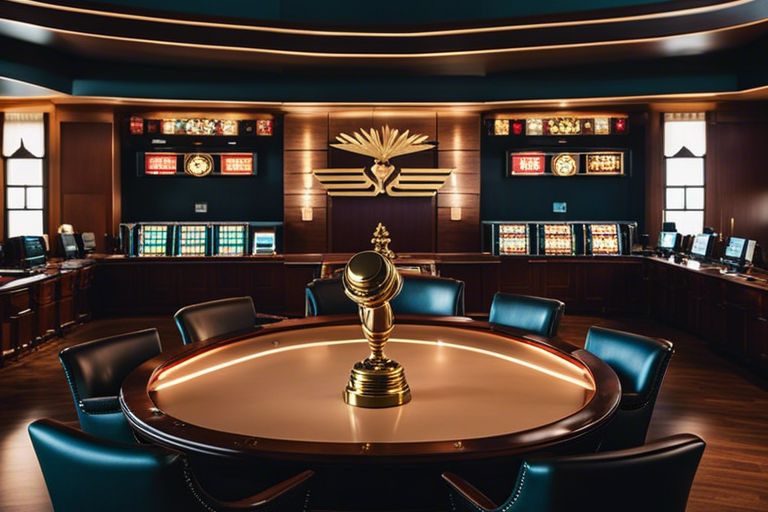Legal Insights Malta’s Gaming Regulations

Over the years, Malta has emerged as a key player in the online gaming industry, owing to its progressive regulations and business-friendly environment. Understanding and complying with Malta’s gaming regulations is critical for operators looking to enter this lucrative market. This blog post aims to provide valuable insights into the key regulations that govern online gaming in Malta, highlighting important compliance requirements and potential pitfalls that companies need to be aware of. Stay informed and stay ahead in the dynamic world of Malta’s gaming regulations.
Regulatory Framework
Malta Gaming Authority (MGA)
To oversee the gaming industry in Malta, the Malta Gaming Authority (MGA) serves as the regulatory body. Established in 2001 under the Lotteries and Other Games Act, the MGA is responsible for issuing licenses, enforcing regulations, and ensuring that operators comply with the law. The MGA’s mission is to provide a safe and fair gaming environment for players while promoting responsible gaming practices.
Licensing and Regulatory Processes
When applying for a gaming license in Malta, operators must undergo a rigorous assessment process by the MGA. This includes background checks on the company and its key individuals, as well as compliance with strict criteria regarding player protection, anti-money laundering measures, and technical standards. Failure to meet these requirements can result in license suspension or revocation, along with hefty fines.
Player Protections and Compliance
Responsible Gaming Measures
If you are a player in Malta’s regulated gaming industry, rest assured that responsible gaming measures are in place to protect you. The Malta Gaming Authority requires all licensed operators to provide tools and resources for players to manage their gaming habits responsibly. This includes self-exclusion options, limits on deposits, and access to support services for those who may be experiencing issues related to gambling.
Anti-Money Laundering Protocols
The prevention of money laundering is a top priority in Malta’s gaming regulations. Operators are required to implement robust anti-money laundering protocols to ensure that their platforms are not used for illicit financial activities. This includes conducting thorough customer due diligence, monitoring transactions for suspicious behavior, and reporting any unusual activity to relevant authorities.
For a comprehensive approach to combating money laundering, operators must also keep detailed records of transactions and have internal controls in place to detect and prevent suspicious activities. Compliance with these protocols is crucial to maintain the integrity of Malta’s gaming industry and protect both players and the reputation of the jurisdiction.
This stringent focus on anti-money laundering measures not only safeguards the gaming industry in Malta but also contributes to the overall global effort to combat financial crime. By maintaining high standards of compliance and working closely with regulatory authorities, Malta sets a precedent for other jurisdictions to follow in the fight against money laundering.
Taxation and Financial Incentives
Tax Regime for Gaming Companies
One of the key advantages of operating a gaming company in Malta is the favorable tax regime. Unlike many other jurisdictions, Malta offers a competitive corporate tax rate of 35% on profits derived from gaming activities. Furthermore, Malta has a full imputation system, which allows for the distribution of dividends with a tax credit for the corporate tax already paid, resulting in an effective tax rate of 0% or 5% for shareholders.
Incentives for Gaming Operators and Developers
Taxation incentives are also available for gaming operators and developers in Malta. A notable incentive is the Research and Development (R&D) Tax Credit scheme, which offers a tax credit of up to 50% on eligible R&D expenditure. This incentive aims to encourage innovation and investment in the gaming industry, making Malta an attractive destination for companies looking to develop cutting-edge gaming technologies.
Challenges and Future Perspectives
International Regulatory Trends
Trends in international gaming regulations pose challenges for Malta’s gaming industry. Increasing global scrutiny and changing regulations in key markets such as the UK and Sweden impact Maltese operators. Adapting to these evolving standards is crucial for Malta to maintain its reputation as a leading gaming jurisdiction.
Prospects for Malta's Gaming Regulations
An ongoing commitment to regulatory excellence and innovation positions Malta well for future success in the gaming industry. The Malta Gaming Authority continuously updates and enhances its framework to meet industry demands and ensure player protection. Collaboration with industry stakeholders and international partners will be key to navigating the complex regulatory landscape.
Gaming operators in Malta should remain vigilant and proactive in complying with regulatory requirements to safeguard their operations and reputation. Staying informed about international trends and proactively addressing regulatory challenges will be crucial for Malta’s gaming industry to thrive in the future.
Final Words
Drawing together the regulatory framework, licensing requirements, and key provisions of Malta’s gaming regulations provides a comprehensive understanding of the legal landscape governing the gaming industry in the country. By adhering to these regulations, operators can navigate the complexities of compliance and ensure a secure and transparent gaming environment for both players and stakeholders. It is imperative for companies operating in the Maltese gaming sector to stay updated with any changes to the regulations and seek legal counsel to ensure full compliance and avoid any potential liabilities. Overall, Malta’s robust gaming regulations serve as a solid foundation for a thriving and sustainable gaming industry in the country.
FAQs:
What is the Malta Gaming Authority (MGA), and what is its role in regulating the gaming industry?
The Malta Gaming Authority (MGA) is the regulatory body overseeing Malta’s gaming industry. Established in 2001, it issues licenses, enforces regulations, and ensures compliance with gaming laws to maintain a safe and fair gaming environment.
What are the key requirements for obtaining a gaming license in Malta?
Operators seeking a gaming license in Malta must undergo a rigorous assessment process by the MGA. This includes background checks, compliance with player protection measures, anti-money laundering standards, and technical criteria.
What responsible gaming measures are in place for players in Malta?
Licensed operators in Malta are required to provide tools for players to manage their gaming habits responsibly, including self-exclusion options, deposit limits, and access to support services for those facing gambling-related issues.
How does Malta address money laundering concerns within its gaming regulations?
Malta prioritizes anti-money laundering protocols, requiring operators to implement stringent measures such as customer due diligence, transaction monitoring, and reporting suspicious activities to authorities.
What tax incentives does Malta offer to gaming companies?
Malta provides a favorable tax regime for gaming companies, including a competitive corporate tax rate and incentives such as the Research and Development (R&D) Tax Credit scheme, aimed at encouraging innovation and investment in the gaming sector.
Michael
With over 20 years experience in web design, SEO and website promotion I always give you an expert advice in regard to any issues related to your Site Design, SEO, Internet Marketing, Promotion, Backlinks, Site Content. In order to help you find out what is missing or can be improved and get higher rankings in Google and more traffic.
Recommended Posts

Instant Insights – Casino Software Selection
May 7, 2024

Malta's Best Gelato Spots
May 7, 2024

